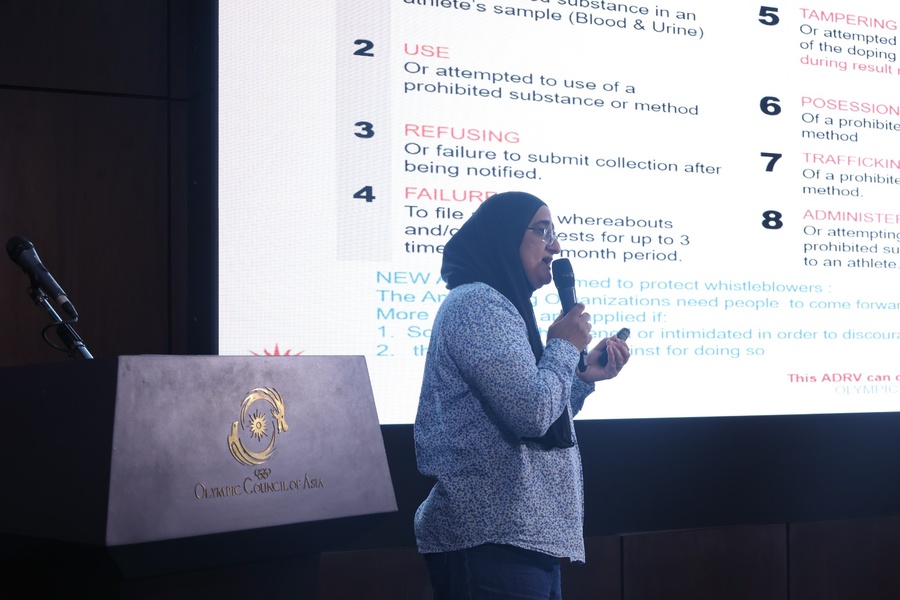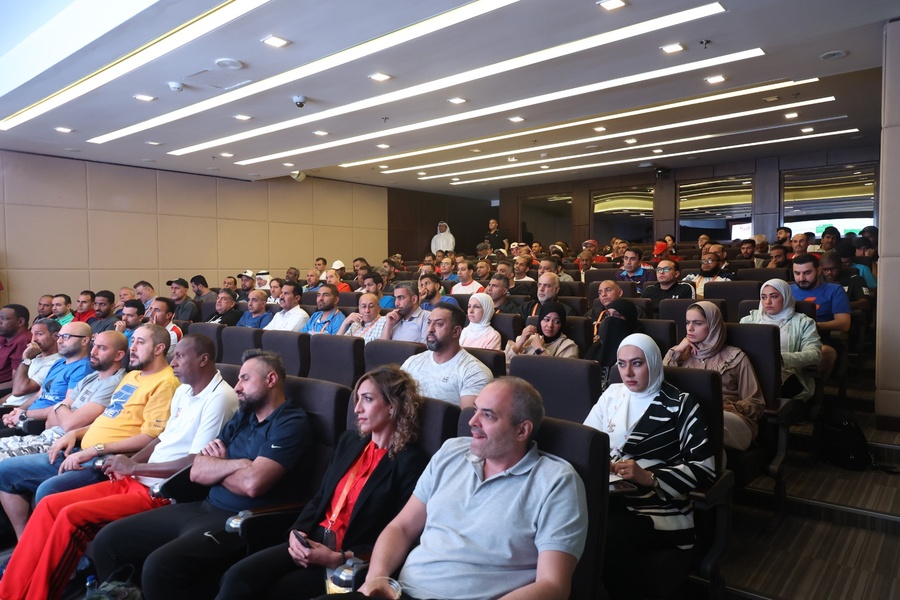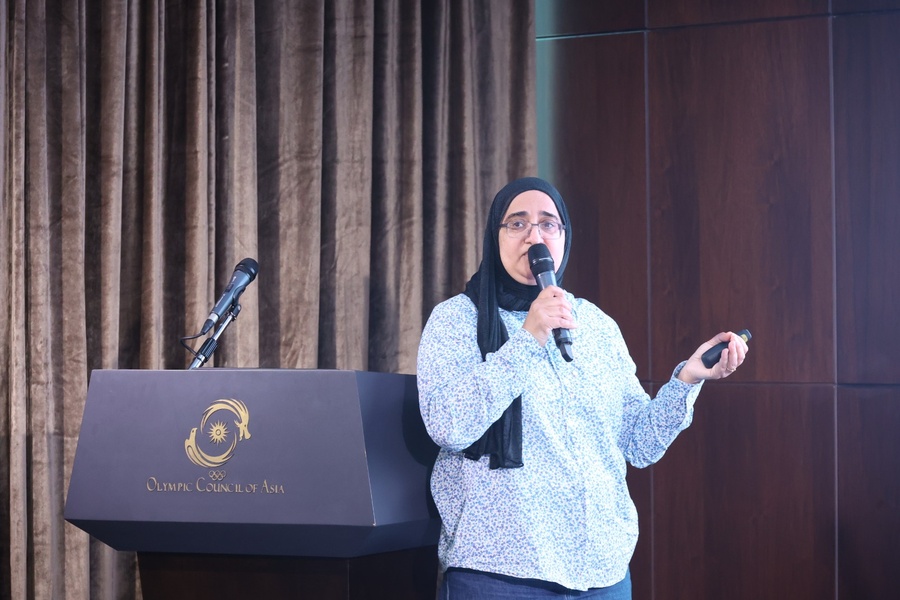Kuwait City, Kuwait, June 7, 2022: The first question was a wicked curveball for Nadiah Al-Shamali at the end of her presentation on anti-doping, on day four of the Olympic Council of Asia Phase Three Development Programme on Tuesday, June 7.
From among the crowd of coaches and referees from athletics, basketball and table tennis gathered inside the ‘New Delhi auditorium’ at OCA Headquarters, a voice asked Al-Shamali, OCA Manager Doping Control Department: “How long does it take for a banned substance to clear from the body?”
Without batting an eyelid, Al-Shamali answered: “I know the answer but I don’t think I should be telling that to you. We shouldn’t be asking this question because we are in a place where we are fighting doping.”
The audience broke up in laughter at the adroit way Al-Shamali had skirted the issue while giving a verbal rap on the finger to the voice behind the cheeky question.
For the first time, all the participants in the three sports in Phase Three were together underlining the importance the OCA places in educating coaches and referees on the ongoing fight against doping in sport.
Before each sport went their own way, the first thing on the agenda on Tuesday morning was a briefing from the in-house specialist on anti-doping, on what key modifications had been introduced recently to the World Anti-Doping Agency (WADA) code.
The 30-minute presentation by Al-Shamali was a quick glance at the key changes, ranging from prohibited substances to new definitions of terms like ‘protected person’, ‘recreational athletes’, and ‘in-competition’.
The Anti-Doping Rule Violations list was also touched on – 11 rules – with emphasis placed on the most recent addition aimed at protecting whistle-blowers. “We need people to come forward and tell us if there are violations and this new rule gives more protection to those people,” Al-Shamali explained.
Prominence was also placed on educating the athletes on the dangers of doping, with WADA stressing that an athlete’s first experience with anti-doping should be with education rather than a sample collection.
Al-Shamali urged NOC’s to develop education plans on anti-doping and for NADO, the National Anti-Doping Organisation in that country, to implement, monitor and educate athletes and officials.
“The OCA feels it is important to educate the coaches and referees as well and that is why we had this anti-doping seminar today where I decided to take a quick glance at key modifications on the 2021 Code,” she added.



